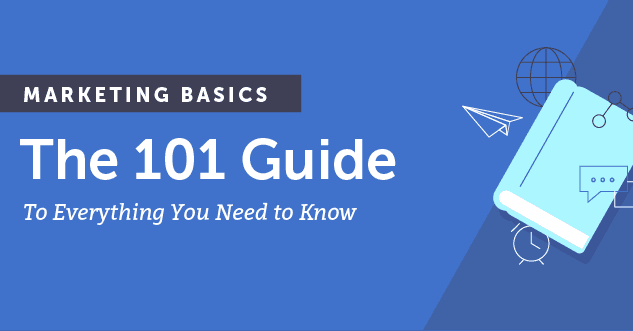Here’s a statistic that might sound all too familiar: 53 percent of surveyed professionals agree their brands face more competition now than in years prior, and 41 percent are worried about the fast pace of shifting consumer needs. So, what’s the solution to those challenges? How can your business stand out while establishing authentic, sustainable connections with your target audience? That’s where effective marketing comes in.
Marketing is an invaluable facet of any business. It will help you craft a robust and cohesive brand message, attract and retain loyal clients, increase website traffic and conversion rates, edge out competitors, and scale your organization’s reach across various platforms or demographics. But if you’re unsure how to do this (or even where to start), that’s no problem. Just follow these essential guidelines to formulate and execute a successful marketing plan.
Hone Your Brand Voice and Image
At its core, marketing is a form of storytelling. When consumers know your business’s mission, values, and human narrative, they’ll resonate and connect with you on a much deeper level. A clear, consistent brand message that illustrates who you are and what you’re about will establish trust with the audience. So, craft a compelling brand story with a cohesive template of colors, fonts, images, tone of voice, and other elements. According to 68 percent of marketers, this consistency can boost revenue by 10–20 percent.
Understand Your Target Audience
Before building a meaningful connection with potential customers, you must understand them first. Who are these consumers? What motivates and interests them? What do they need or want from the brands they follow? Research the target audience to learn their demographics, locations, preferences, online behaviors, search histories, or other relevant data. Once you have this information, use it to personalize your communication, grab the consumers’ attention, meet their expectations, and nurture a relationship.
Create a Unique Value Proposition
A unique value proposition (UVP) will help you stand out while earning more credibility with the target audience. It’s a promise you make to consumers, reassuring them of all the benefits your product or service will offer. A strong UVP cements your brand as the obvious choice in a customer’s mind, thus influencing their purchase decision. Most UVPs are just a few brief sentences in length, but they must be specific and impactful. If you need help creating one for your brand, use the “FAB” framework:
- Features: Explain what the product or service can do for a consumer.
- Advantages: Explain how the product or service accomplishes that function.
- Benefits: Explain why the product or service will enhance a consumer’s life.
Deliver Consistent, Quality Content
Nearly 70 percent of brands invest more time and resources into content marketing in 2023—and it’s not hard to see why. Publishing valuable content across a wide range of online channels will increase visibility with consumers, generate social media impressions and organic website traffic, and position your business as a reputable authority in the field. Effective content marketing is built on quality and consistency. Create informative and entertaining videos, polls, articles, podcasts, email newsletters, and more—then actively share this content on your target audience’s favorite platforms to encourage interactions.
Gather Feedback from Consumers
Listen to both your existing and potential customers. Their feedback will offer actionable insights on how to tweak your brand communication, refine your products or services, and enhance the overall customer experience. Gather this input through surveys, online reviews, social mentions, comments, or direct messages. Respond as quickly as possible when consumers reach out to you, be transparent and intentional about answering their questions or resolving their concerns, and show you’re willing to pivot based on their feedback.
Monitor and Measure Your Results
A marketing plan is only complete with the tools to monitor and measure its success. Eighty-seven percent of surveyed marketers confirm that data is their organization’s most untapped asset. Suppose you’re not tracking online metrics such as website clicks, page views, content dwell time, email open rates, social media comments or shares, lead generations or conversions, and other vital insights. In that case, you won’t be able to determine if the campaign was effective. Platforms like Google Analytics collect this data in real time, so you can make informed decisions, hone your strategies, and allocate resources to maximize the ROI.
Follow these Guidelines for Marketing Success
A well-structured marketing plan is foundational to the growth of any business. So focus on nurturing audience connections, crafting an authentic brand story, producing valuable content, and monitoring your results to achieve success. Once you master the basics, there’s no limit to how far you can extend the reach and impact of your brand.
